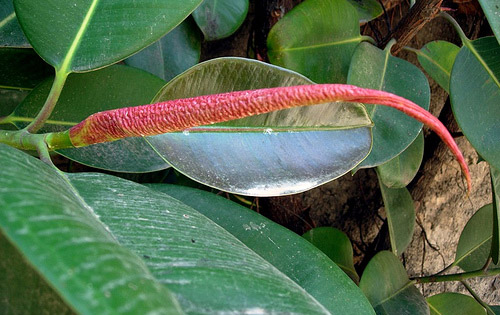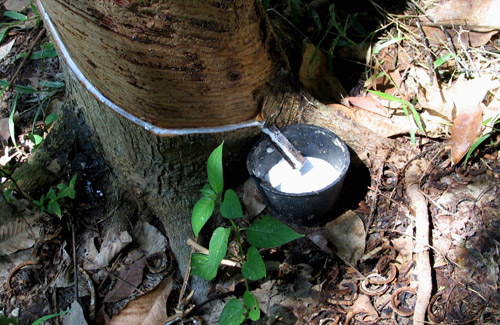
Welcome to a new week and another Monday edition in the a-z of plants your horse can’t eat. Today’s plant is a super common (and useful) one, the Indian Rubber Plant is easily recognizable and really toxic to horses.
A Little About Indian Rubber Plants
Ficus elastica is also called Assam Rubber, Indian Rubber Plant/Bush, Rubber Tree and Snake Tree. Part of the banyan group of figs, this tree grows very large on an irregular trunk with buttressing roots. Oval shaped leaves are broad, shiny and waxy. Small flowers are nondescript and fruit is small, oval and yellow/green.
How Dangerous Is It?
This plant is unpalatable to equines and generally only a threat during extreme drought conditions. It’s not the plant itself that’s the problem, but the sap that is the problem – it contains an unknown toxin which can irritate the skin on contact.
The sap of this plant is toxic to equines & can irritate the skin by contact.

What To Look For
You know your animal the best, so you should know when something is amiss. Indian Rubber Plant toxicity symptoms include irritation, redness and swelling of mouth and throat, gastrointestinal upset and diarrhea.
Learn More
Be sure to check out the Indian Rubber Plant page to learn more about the plant and while you are at it why not check out more toxic plants?
*It should be noted that I’m not a veterinarian. This information is written specifically for horses and should be used for reference purposes only. If you think your horse has eaten something toxic call your vet right away.

I love this helpful information on toxic plants. What a great idea for your blog, and wow, there are a lot of toxic ones out there. Good thing that are horses are smart enough to avoid them most of the time!